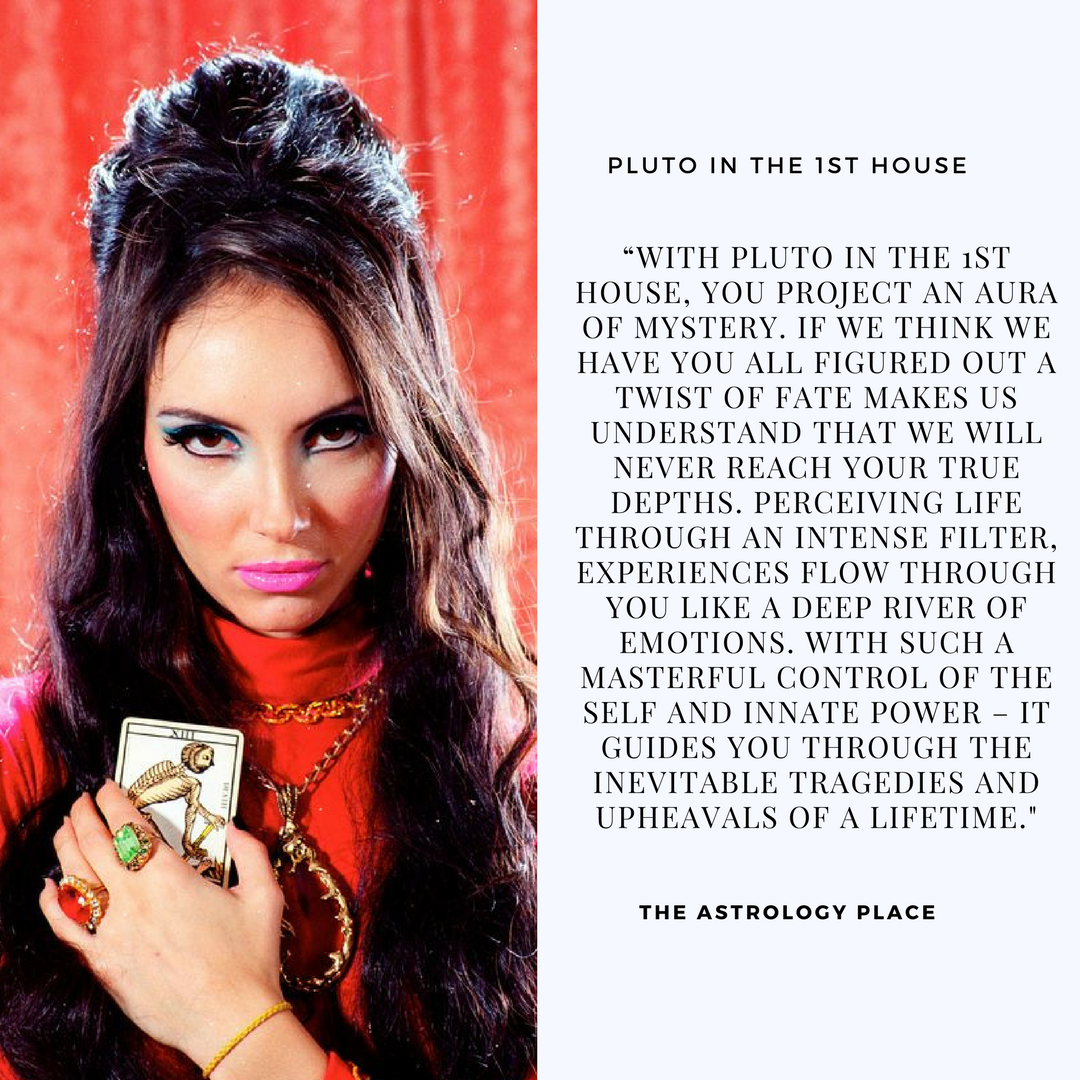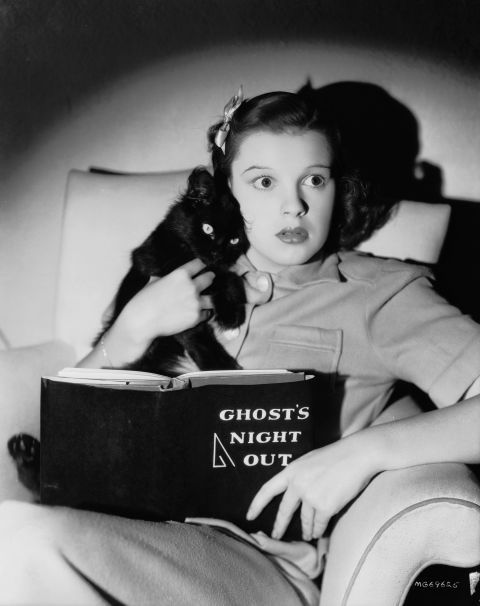
Pluto in Libra
 When Pluto transited through the sign of Libra, it was the ultimate relationship therapist shaking up the couch cushions, forcing humanity to confront its outdated notions of love, marriage, and who exactly should be washing the dishes. This was the era when society took a long, hard look at its relational patterns and thought, Maybe, just maybe, we should stop pretending that “happily ever after” means a woman in an apron and a man reading the newspaper in stoic silence. Libra, being the great balancer of the zodiac, didn’t smash things to bits (that’s more Pluto in Scorpio’s job). Instead, Pluto in Libra said: “What if we made this whole love thing fairer? What if marriage wasn’t an obligation but was more focused on mutual growth?” It was at this time that the feminist movement gained substantial momentum. It wasn’t just an ideological shift—it was Pluto demanding a recalibration of power dynamics, a restructuring of intimacy, a reimagining of relationships where both partners could stand as equals rather than archetypes.
When Pluto transited through the sign of Libra, it was the ultimate relationship therapist shaking up the couch cushions, forcing humanity to confront its outdated notions of love, marriage, and who exactly should be washing the dishes. This was the era when society took a long, hard look at its relational patterns and thought, Maybe, just maybe, we should stop pretending that “happily ever after” means a woman in an apron and a man reading the newspaper in stoic silence. Libra, being the great balancer of the zodiac, didn’t smash things to bits (that’s more Pluto in Scorpio’s job). Instead, Pluto in Libra said: “What if we made this whole love thing fairer? What if marriage wasn’t an obligation but was more focused on mutual growth?” It was at this time that the feminist movement gained substantial momentum. It wasn’t just an ideological shift—it was Pluto demanding a recalibration of power dynamics, a restructuring of intimacy, a reimagining of relationships where both partners could stand as equals rather than archetypes.
The 1970s and early 1980s saw the rise of no-fault divorce, giving people an actual exit route from unhappy marriages. Open relationships and alternative ways of loving started creeping into mainstream consciousness. Music, film, and culture reflected this shift—love was no longer a romanticized ideal but a complex, evolving dance requiring negotiation, understanding, and sometimes, a breakup album. And let’s not forget, Pluto doesn’t do things quickly. The seeds sown during this period continue to bloom (or sometimes explode) in modern relationships.
The Wrecking Ball
When Pluto moved into Libra, it came as a wrecking ball to the fairytale of ’til death do us part. This was the era when humanity collectively looked at marriage, sighed, and said, “Wait a minute, do we actually like this setup, or have we been guilt-tripped into it for generations?” The introduction of easier divorce practices in many parts of the world was a radical shift in consciousness. Before this, getting out of a marriage required proving adultery, cruelty, or some other Shakespearean-level scandal. But Pluto in Libra, ever the relationship coach, urged us toward the realization that sometimes love simply fades, and that should be enough of a reason to move on.
And with this, a seismic shift occurred: divorce lost its scarlet letter status. No longer was it the gossiped-about shame of fallen housewives or disgraced businessmen; it became a recognized part of the human experience. A relationship wasn’t a failure because it ended—rather, staying in a loveless marriage out of duty started to seem like the real tragedy. Of course, Pluto isn’t only the planet of endings—it also transforms. Marriage itself began to mutate into something more conscious, more egalitarian, more attuned to personal growth. The old model of sacrifice for the sake of stability started giving way to partnership as a vehicle for self-expression. People began to prioritize compatibility over obligation, authenticity over endurance.
This was a time to take down the illusion that a singular, static vision of love could serve the complexity of human connection. Relationships became more honest. And while Pluto in Libra didn’t solve all our relationship woes (hello, Pluto in Scorpio divorce boom of the ‘90s), it did set the stage for a world where love is less about ownership and more about choice. A painful but necessary evolution, wouldn’t you say?
The Timekeeper
Pluto is the great timekeeper of the zodiac, the slow-moving planet of generational shifts, the unseen hand rearranging the furniture of human consciousness whether we like it or not. Pluto in Libra aimed straight at the illusions of perfect relationships. It tore through the contractual nature of marriage and ushered in a new truth: Partnership should be about balance, not endurance. Love should not be a battlefield where one side always concedes; it should be a dance of equality, respect, and conscious choice.
This wasn’t only happening in bedrooms and living rooms—it was happening in courtrooms and government offices, too. Legal systems adapted, making it easier for people to dissolve unions that no longer served them. Women stepped further into their power, demanding marriage be a choice rather than an economic necessity. Even the very concept of diplomacy was shifting—Pluto in Libra pushed the world toward agreements based on fairness rather than dominance, a collective yearning for justice rather than mere power plays.
Of course, Pluto doesn’t offer easy lessons. The dismantling of old structures leaves a period of uncertainty, where people struggle to enter into new relational landscapes without the comforting (if oppressive) security of tradition. The rise of divorce, the questioning of gender roles, the push for equality—all necessary progress, but not without growing pains. And yet, from destruction comes rebirth. The seeds planted during Pluto’s transit in Libra continue to blossom today, in our conversations about gender roles, consent, equality, and partnership. Love is a co-written story, shaped by the individuals within it rather than the outdated expectations of those outside of it. Pluto’s work is never finished, of course. But in Libra, it set the stage for equal partnerships.
No More Pretending
When Pluto entered into the sign of Libra, its message was clear: No more pretending. No more forced smiles in unhappy marriages, no more empty diplomatic handshakes covering deep-rooted tensions, no more relationships—personal or political—built on facades. This was a time when life itself seemed to say, “If it’s not real, if it’s not fair, if it’s not built on mutual respect—then it’s got to go.”
In love, this meant a reckoning. The era of keeping up appearances in relationships started to crumble. People were forced to engage in real conversations about power. The romantic ideal of staying together at all costs gave way to a new ethos: better apart than inauthentic together. The days of suffering in silence were numbered—Pluto in Libra demanded partnerships based on truth rather than social expectation.
But this influence wasn’t confined to the domestic realm—it rippled into the grander stage of global politics. Libra, ever the diplomat, wants peace, balance, and fairness. Pluto, ever the agent of transformation, doesn’t settle for surface-level niceties. So, what happened? The world saw major diplomatic shifts, peace treaties, and power struggles that forced leaders to rethink alliances. Of course, Pluto doesn’t grant utopias—its gift is the process of transformation, not the final result. The seeds planted during this period—the push for fairness, for genuine connection, for diplomatic honesty—are still influencing our world today. It was a time when humanity collectively started questioning: What does a just, balanced, and authentic relationship—whether romantic, political, or international—actually look like? And while we’re still answering that question, Pluto in Libra ensured we could never again settle for false harmony over real balance. A bit uncomfortable? Sure. But necessary? Absolutely.
Equal Rights
Pluto in Libra ushered in an era where the usual quiet pleas of “Maybe women should have equal rights?” turned into full-throated demands, protest marches, and legislative changes. If Pluto is the great transformer, then in Libra, it was a gavel pounding on the scales of justice, declaring, “Balance must be restored!” And what better manifestation of this than the feminist movement kicking down doors, taking down outdated power structures, and demanding a seat at every table?
The rise of feminism during this period wasn’t all about women entering the workforce or getting legal rights—it was about a deeper shift in consciousness. Women weren’t only asking for inclusion; they were demanding authenticity, refusing to play prescribed roles in relationships, politics, and society at large. No longer was marriage an economic contract; it was being redefined as a partnership of equals. No longer were women expected to politely nod along while men made all the decisions—now, they were stepping up to make those decisions themselves.
And then we had Margaret Thatcher—The Iron Lady herself—marching onto the world stage in 1979, right as Pluto danced across the UK’s Descendant in Libra. Now, love her or loathe her, Thatcher’s rise was undeniably Plutonian: transformative, divisive, and utterly uncompromising. Her leadership reshaped Britain’s political landscape, much like Pluto in Libra reshaped society’s approach to power dynamics. It was a moment where the UK’s relationship with authority, governance, and gender roles was irrevocably altered.
This period didn’t solve everything—far from it. But it cracked open doors that had been locked for centuries. It forced society to confront its biases, rethink its institutions, and acknowledge that fairness and balance were necessities rather than ideals. And in true Pluto fashion, the work is never really done—only evolved.
The Pluto in Libra Generation
The Pluto in Libra generation are the revolutionaries born under the decree of “Balance must be restored, and fairness shall reign!” If Pluto’s influence rules transformation, then those carrying its Libra imprint are the seeds of a new world order in relationships, fairness, and social justice. The legal shifts of the 1970s—the Sex Discrimination Act and the Equal Pay Act in the UK—were manifestations of a deeper, Plutonian shift in consciousness. Society was finally catching up with a truth that had long been denied: Women deserved equal rights. As a basic, inarguable reality. These laws concerning wages and workplace protections; they were there to dismantle the very foundations of institutionalized inequality.
And who were the souls born into this Plutonian upheaval? The Pluto in Libra generation—those destined to feel this transformation in their bones and carry it forward. These individuals, now adults living in a world still reckoning with fairness and equality, are often the ones leading conversations about balanced partnerships, non-traditional family set-ups, and evolving ideas of love and commitment. They reject power imbalances in relationships, whether romantic, professional, or political. They are the ones championing open communication, consent, and emotional intelligence in love. They are the mediators in conflicts, the advocates for fairness. They are the generation redefining marriage as a space for mutual growth and shared power. They are the ones pushing workplaces toward true inclusivity, demanding not only equal pay on paper, but equal opportunities in practice.
But let’s not forget—Pluto’s lessons are never easy. The Pluto in Libra generation has had to grapple with the shadows of indecision, people-pleasing tendencies, and the burden of always trying to find the “fairest” solution in a world that often resists balance. The fight for justice, after all, is never without opposition. Still, they persist. Because Pluto’s lessons involve deep, irreversible transformation. And if the Pluto in Libra generation has one mission, it’s this: to leave behind a world where fairness isn’t a privilege—it’s a given.
Personal influence: In some ways Pluto puts some spice into Libra, but it does increase the Libran tendency to rock the boat, and especially to instigate quarrels in order to prove the partner’s affection or lack of it…jealousy and possessiveness will also be a problem if Libra is prominent or Pluto personalized. Parkers’ Astrology: The Essential Guide to Using Astrology in Your Daily Life


















 Sun Square Pluto Synastry: You’ve Got That Power Over Me
Sun Square Pluto Synastry: You’ve Got That Power Over Me
 Scorpio’s Cold Withdrawal
Scorpio’s Cold Withdrawal
 Moon Conjunct Pluto Synastry
Moon Conjunct Pluto Synastry
 Venus-Pluto Synastry: A Love So Powerful That It Might Just Kill Them
Venus-Pluto Synastry: A Love So Powerful That It Might Just Kill Them
 Mars Square Pluto Natal Aspect: The Unbreakable Spirit
Mars Square Pluto Natal Aspect: The Unbreakable Spirit
 Reflections on a Past Venus-Pluto Synastry Aspect
Reflections on a Past Venus-Pluto Synastry Aspect
 Mercury Conjunct Venus Synastry
Mercury Conjunct Venus Synastry
 Mars-Pluto Synastry: Something Quite Dark and Dangerous
Mars-Pluto Synastry: Something Quite Dark and Dangerous
 Uranus Transits 8th the House: Rebirth from Chaos
Uranus Transits 8th the House: Rebirth from Chaos
 Venus Trine Mars Synastry
Venus Trine Mars Synastry
 Mars-Saturn Synastry: The Eternal Loop
Mars-Saturn Synastry: The Eternal Loop
 Composite Sun in the 8th House: Weather the Storm
Composite Sun in the 8th House: Weather the Storm
 Mars in Aquarius: Sex drive
Mars in Aquarius: Sex drive
 Sun Conjunct Pluto Synastry: Enlightening or Annihilating
Sun Conjunct Pluto Synastry: Enlightening or Annihilating
 Venus Trine Pluto: Dark Desires
Venus Trine Pluto: Dark Desires
 Mars Conjunct Pluto Synastry
Mars Conjunct Pluto Synastry
 Moon Opposite Uranus Natal Aspect
Moon Opposite Uranus Natal Aspect
 The Watery Gardeners: Cancer, Scorpio, and Pisces
The Watery Gardeners: Cancer, Scorpio, and Pisces
 Transiting Pluto Aspect Natal Mars: Are You Mad as Hell
Transiting Pluto Aspect Natal Mars: Are You Mad as Hell
 Moon Conjunct Pluto Natal Aspect: Emotional X-Ray Vision – Seeing Through Souls Since Birth
Moon Conjunct Pluto Natal Aspect: Emotional X-Ray Vision – Seeing Through Souls Since Birth